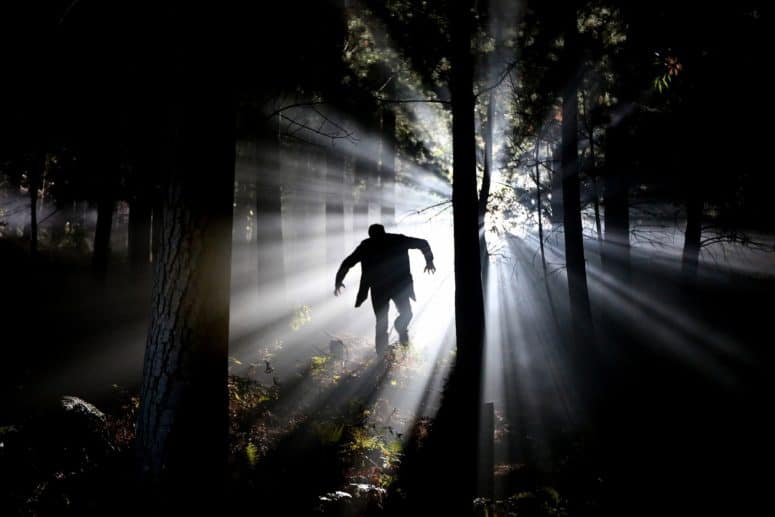My eyebrow raised in an accidental fashion, proof I’m no good at poker. But, in my defense, I must have misheard—or maybe I mis-asked the question. So, I tried again.
“Is the creature guilty?”
Without skipping a beat, she responded, “No. It wasn’t his fault.”
We stared at each other for a moment, and she said again, “It wasn’t his fault. He had a bad life—I mean Victor treated him terribly, so he didn’t do anything wrong.”
I thought for a moment of Mary Shelley. What would she say of her creature in Frankenstein? Would she say that he was innocent, that he didn’t do anything wrong? I don’t think so… so, I changed tack.
“Victor certainly neglected the creature, and he is guilty for that. But, the creature did kill Victor’s little brother, and he kills Victor’s friend Henry Clerval, and he kills Elizabeth.”
She nodded in response, though not yielding any ground: “Yeah, but he was doing what he thought was right. And I mean, people were so mean to him.”
I nodded slowly, but it wasn’t in agreement. I wanted to point to the logic of the creature’s actions: “Yeah, people were mean to him, but he did kill people. Especially those murders of Henry and Elizabeth—those were premeditated. He planned those.”
“But Victor made him that way.”
“Was it because of the way he looked that made him a monster—or was it perhaps because he was doing monstrous things?”
She looked right at me. “I think he’s innocent. He was just doing what he thinks is right—he’s just living his truth.”
And, there it was. Something about the conversation was bothering me, and I couldn’t name it until she said it for me: “… just living his truth.”
So I tried again, “What if it’s not a matter of killing? What if the creature hated women or a specific race? What if that was his truth? Would that change anything?”
Her eyebrows furrowed, “Well, if it’s their truth. And if they have a good reason for it, like the creature did… He had a really, really bad life. Victor was a bad father. People were violent with him. And, he was alone. So, that like makes his truth. So, for him, he didn’t do anything wrong.”
“Ok. But he did kill people, right?”
She shrugged, “Well, I mean, technically…”
“So, you wouldn’t feel comfortable telling the creature he did anything wrong? Like, if you met him in a coffee shop as a friend, and he told you everything he had done in Mary Shelley’s novel. Would you say he’s wrong?”
“I don’t… I don’t think you can say that to people. I mean, everyone has their life. So you can’t judge them or judge their actions. That’s not OK. You have to let them be themselves.”
***
Though I spend my days teaching high school students literature, we frequently explore questions of right and wrong. I bring in discussions of character and agency. Of choice and context. Of guilt and culpability. I bring in legal terms—mens rea, actus rea, etc. We talk about responsibilities and obligations, and we wrestle with how we interact and what we owe to society as a whole… Sometimes, we even talk about people perhaps being wrong.
But, relativism doesn’t just occur in hallways lined with lockers. At one time in my own life, I might have even argued that right and wrong were relative, that if someone’s “truth” tells them to do something, then I have no right to tell them otherwise—no right to say they are wrong.
While I’ve grown out of that, I think I get why it’s hard to accept. I get why people are hesitant to say “you’re wrong” and risk being labeled judgmental. I get how it can be scary to speak up against someone who is lying. I get how it can be awkward to correct a friend, let alone a stranger, when they risk hurting themselves or others.
In the case of Frankenstein, as in every other case, murder is a pretty obvious wrong. Still, I hope that people would empathize with a creature who was ostracized, hated, and hurting—perhaps even being bold enough to show love. In an effort to love though, I worry that we might not be willing to point out wrongs which occur outside the pages of literature—wrongs we encounter too often in our own lives: when a friend drinks too much or too often…when a loved one lives in an abusive relationship…when someone is bullied, shamed, or objectified on social media…
It can be scary, hard, and awkward, but I also think it’s a part of loving one another—authentically loving, which isn’t always easy. Despite it being uncomfortable, it is more loving to help guide others towards genuine truth. Sometimes, we might have to show love by saying “you’re wrong.”
-//-


